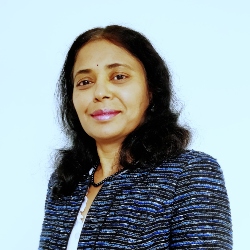Consultant article: Headaches in children
Headaches can be a common problem in children of all ages. Consultant paediatric neurologist Dr Gayatri Vadlamani talks to us about some of the causes of headaches and ways to treat them.
“Headaches are usually grouped into one of two categories:
- Primary headaches: the headache is the main disorder with no underlying medical condition causing it.
- Secondary headaches: the headache may be a result of an underlying medical condition.
The most common primary headaches are tension-type headaches (TTH) and migraines. Migraines are usually recognised as a type of headache which affect adults, but even young children can experience them.
Some of the possible causes of secondary headaches can include, but are not limited to, sinusitis, a previous head injury or medication use.
All recurrent headaches in children need an evaluation by a paediatrician with relevant experience or a paediatric neurologist. If evaluated, diagnosed and treated early on, the outcomes are much better.
Migraines in children
Migraines are the most common type of primary headaches in children and a family history of it is common. They can range from 4 to 72 hours. The symptoms depend on the type of migraine your child has. In some cases, they may see bright spots or have altered sensations. Before a migraine, adults may experience warning signs such as blurred vision. These warning signs are less common in children. Triggers to migraines in children include stress, excessive fatigue/exertion.
Tension-type headaches in children
Tension-type headaches are also a common primary headache in children. They tend to occur during times of stress and can last for long periods of time, sometimes several days. They tend to affect the neck and the back of the head more often than the front.
Post-traumatic headaches in children
Post-traumatic headaches usually follow trauma to the head such as falls or sports injuries. These can persist for different lengths of time. Post-traumatic headaches may take the form of a migraine or tension-type headache. Other symptoms may occur such as dizziness or sleep disturbance.
Other causes of headaches in children
- Cluster headaches are rare in children. Symptoms may include a runny nose and congestion. Sometimes your child's eye may water on the same side of the head as the headache.
- Medication misuse headaches can be a result of an overuse of pain killers to treat headaches in your child.
How to treat headaches in children
The treatment very much depends on the type of headache your child has. There are different medications available to treat primary headaches or reduce their frequency. At Nuffield Health Leeds Hospital, your child will be evaluated by a consultant paediatric neurologist and after a detailed assessment, we will talk through the options with you and your child. For children who would prefer not to take oral medication, there are alternative options such as a nasal spray or an injection.
Your next steps
If your child suffers from headaches, it is important to seek medical attention early to prevent a delayed diagnosis. The quicker they are treated, the sooner they can go back to enjoying all their activities without the headaches limiting them."
Please contact Nuffield Health Leeds Hospital on 0113 388 2067 to book an appointment with a consultant paediatric neurologist today.
About Dr Gayatri Vadlamani
Dr Gayatri Vadlamani is an experienced consultant Paediatric Neurologist at Nuffield Health Leeds Hospital delivering outpatient clinics for children with a wide range of neurological disorders.
Her expertise includes the assessment, investigations, diagnosis and management of a wide range of neurological disorders in children including:
- Neurodevelopmental disorders such as developmental delay
- Headaches including the administration of occipital nerve blocks
- Gait disorders such as toe walking
- Movement disorders and funny turns in children including faints, fits, tics and Tourette's syndrome
- Sleep disorders
- Epilepsy
- Management of cerebral palsy including the administration of botulinum toxin injections

